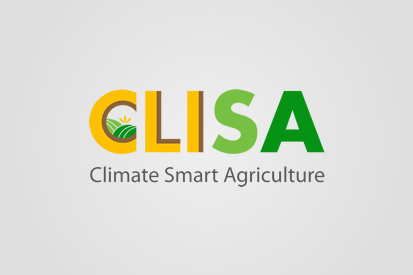
The following projects will be carried out under this research theme:
Developing a Real-Time Agroclimate Monitoring Network: Real-time weather and soil information (e.g., precipitation, temperature, wind speed, humidity, dew point, solar radiation, soil temperature and moisture, and so on) is particularly important for local farmers to make informed decisions in support of their day-to-day management practices (e.g., irrigation and pest management). In this project, the CLISA trainees will work together to establish a real-time agroclimate monitoring network for the major agricultural regions in Canada, based upon the research team’s successful experience in establishing the island-wide real-time agroclimate monitoring network for PEI (i.e., PEI Weather & Climate App, website: https://weather.peiclimate.ca). This aims to fill the spatial gaps of the current weather station network maintained by Environment and Climate Change Canada in capturing the microclimates affecting agricultural production. In addition, the state-of-the-art remote sensing technologies (i.e., drones and satellites) will be employed to support the measurement of field-specific weather and climate conditions. In this project, the CLISA trainees will become acquainted with various weather and soil measurement equipment (e.g., anemometer, wind vane, pressure sensor, thermometer, hygrometer, rain gauge, soil sensors, and so on), drones and sensors, and satellite datasets. They will also learn to analyze and visualize climate monitoring data with various geospatial tools (e.g., ArcGIS, QGIS, and ENVI).
Harnessing Seasonal Climate Prediction for Short-Term Agricultural Planning: Seasonal climate prediction aims to provide useful information about the “climate” that will prevail over the next few months and it is critical for increasing crop productivity, especially for short-duration crop varieties. The objective of this project is to downscale the Canadian Seasonal to Interannual Prediction System (CanSIPS) – Regional Deterministic Prediction System (RDPS) with various statistical downscaling technologies (e.g., quantile mapping, bias correction, stepwise clustering analysis, and SDSM) to generate 1km x 1km high-resolution seasonal climate prediction data for the major agricultural regions in Canada. The results will provide sufficient information for local stakeholders and resource managers to make adaptative plans for the upcoming climate over the next few months. This project will provide the CLISA trainees with hands-on experiences in conducting high-resolution seasonal climate prediction and mapping the spatiotemporal patterns of microclimate at local scales.
High-Resolution Climate Projection to Support Long-Term Agricultural Adaptation Strategies: Long-term climate projections can provide century-long climate scenarios to help understand the potential direction and magnitude of changes to be expected for the local climate under various GHG emission scenarios. This is particularly useful for assessing the potential impacts of climate change on crop yields and food security. In this project, the state-of-the-art regional climate models (e.g., WRF, MPAS, and RegCM) will be used to perform dynamical downscaling to the latest GCM outputs from the IPCC AR6 under the shared socio-economic pathways (SSPs) to generate high-resolution climate scenarios with a spatial resolution of ~10km. Statistical downscaling approaches such as stepwise cluster analysis, regression-based downscaling, weather typing procedure, and stochastic weather generation will be employed to further downscale the RCM outputs to 1km. Climate downscaling will require significant computational resources and the high-performance computing (HPC) clusters within the CCCCA at UPEI will be used for this purpose. Through this project, the CLISA trainees will gain hands-on experiences in regional climate modeling and statistical downscaling with HPC.
Assessing Climate Change Impacts on Crop Yields & Exploring Climate-Resilient Farming Practices: Crop models can help assess the potential impacts of climate change on crop yields and quantify the contributions of various farming practices (e.g., fertilizer application, irrigation, crop rotation, etc.) to climate change adaptation and mitigation. Based on the climate monitoring data, seasonal climate prediction data, and long-term climate projections from the above-mentioned projects, this project will use the Decision Support System for Agrotechnology Transfer (DSSAT) model to assess the impacts of future climate change on the yields of major crops in the context of Canada. Potential adaptation measures will be explored through the sensitivity analysis of various management practices, such as irrigation schemes and efficiency, crop rotation and scheduling, and increasing soil productivity in farming. In this project, the CLISA trainees will be trained to use meta-analysis to assemble a database from literature to provide DSSAT with inputs for the various landscapes in Canada.

CLISA is the first multi-institutional training program in Canada towards climate smart agriculture to help address the need for HQPs who possess appropriate knowledge and expertise in climate change, precision agriculture, water and soil management, sustainable food production and food value chains, and climate-smart financing and policies to promote the development and application of innovative technologies and strategies in Canadian farming practices.